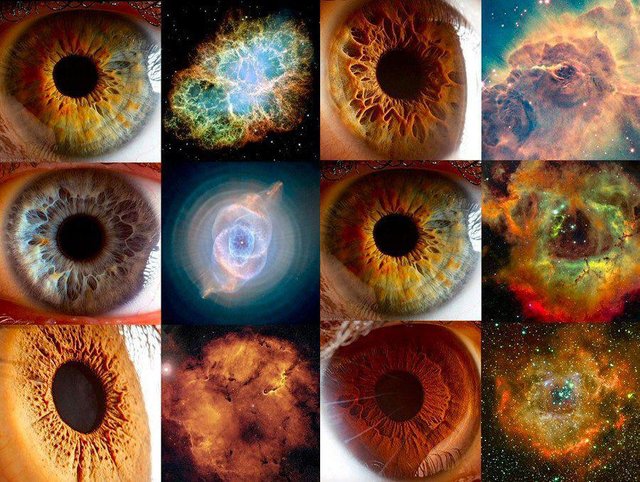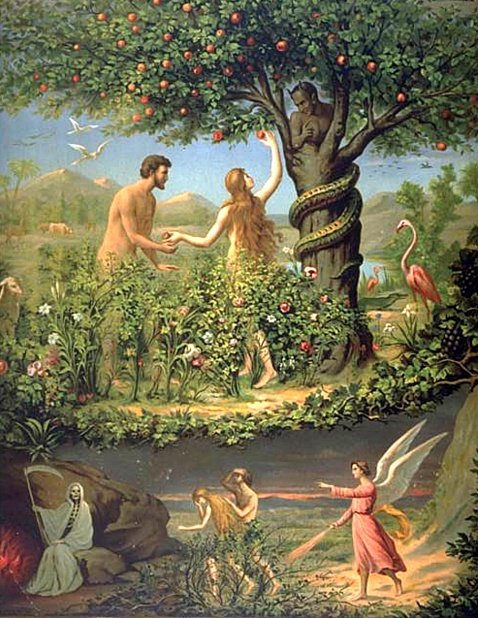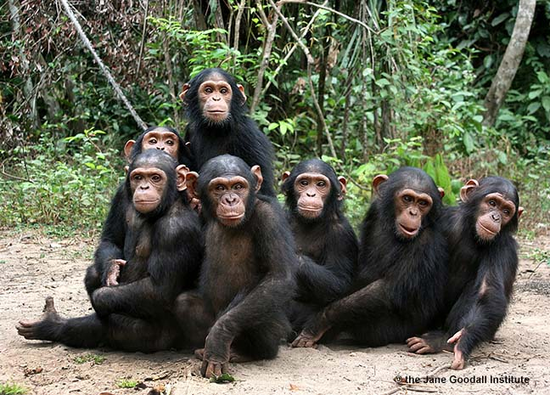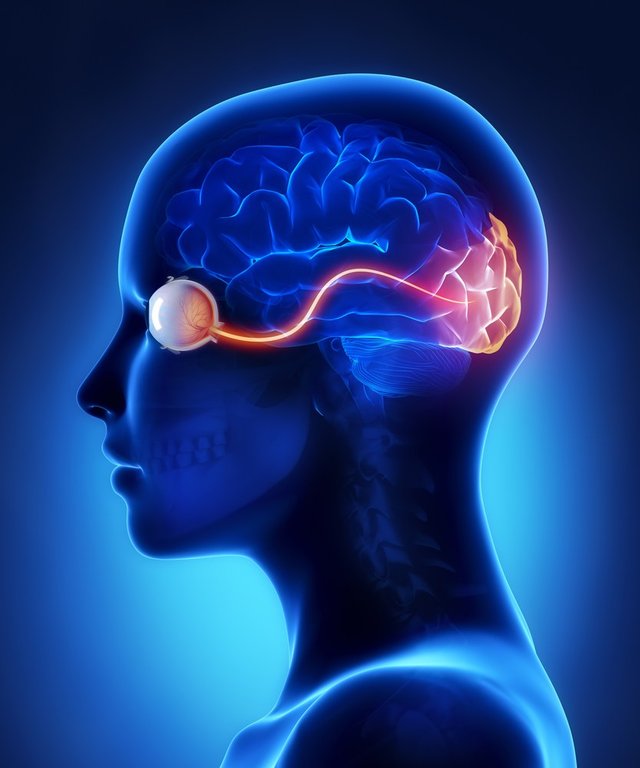Relative Realities Part 4: Self Consciousness, and the Fall of Mankind

"Their eyes were opened, and the first thing they saw was their own nakedness."
This is the awakening of mankind from the unconscious, timeless state of paradise, into self-awareness, vulnerability, ultimate mortality. Anthropologists, academics, and historians alike call this event, "The Fall".
For those joining here, this is a brief overview of the first catastrophe of humanity; the birth of our unparalleled capacity for self consciousness, and how it was simultaneously the greatest gift and the greatest curse of mankind. The narratives we produced following our awakening were a collective human attempt to lift that curse, and the story we're analyzing now chronicles what happens immediately The Fall.
Instantly, the pair gained the knowledge of Good and Evil. In realizing one’s own inherent mortal weakness, one also recognizes the vulnerability of others, and can capitalize on that realization to exploit and magnify their suffering. So, with this knowledge, we each have a choice; namely, to ease or worsen the suffering already intrinsic to human the human experience, to either bring us closer to heaven, or to hell, so to speak. This choice is what we call morality, our war between good and evil.
The Creator of the Universe was not happy at all to find out what man had done. He cast Adam and Eve away, banishing them from Eden, and sentencing them and their descendants to an eternity of toil and strife. (and he locked the door behind them for good measure) Now, naked, afraid, and unprepared as they were, mankind was no longer sheltered by the bosom of their Creator. They must grow up, take on the mantle of adulthood, and learn to fend for themselves.

(Cast out of Paradise after eating of the fruit, and into the arms of Death)
The parallels between the story of Adam and Eve and the dawning of human self-consciousness makes it all but archetypally perfect. However, this style of narrative isn’t exclusive to Christianity, nor is it incompatible with eastern traditions like Buddhism.
In the Buddhist tale, the Buddha encounters a similar condition after being expelled by from the luxuries of his father’s kingdom and hurled into the realities of suffering and death. Much like Adam and Eve, it was his own curiosity that eventually led to his banishment from the original naivety and Grace, and the rest of the story is focused on how exactly he strove to overcome this.
In either case, our Paradise was the immediate moment, and all the spontaneous joys and mysteries of life lay waiting in its midst. Then, through one error or another, we acquired self knowledge, which also equates to knowledge of the future, and with it, morality, and death. As a consequence, we’re forced to make sacrifices to that future, namely the gaiety of life in the present, to perpetuate our existence across time.
And so, our stay in Paradise came to an end. We came out of this process blessed with enhanced awareness and cognition, and burdened with an eternal moral and psychological angst. This knowledge of morality, death and the future, is what elevated us from the primitive realm of the animals, into our status as quasi-divine creators of our own realities. Our challenge however, is made all the more difficult by the fact that while psychologically we may be conscious and human, biologically we’re not far off from beasts.

We share somewhere between 96 to 98.9 percent of our DNA with bonobos and chimpanzees. For reference, that means we’re ten times more genetically similar to chimps than mice are to rats. And yet, genetics aside, the gap in cognition between us is profound. For all intents and purposes, before the advent of self-awareness, human and animal kind were one in the same. We too partook of the utopia of ignorance, spontaneity, and bliss, we too abode in the state of Grace.
Until one day, something changed, and we became truly awake. Though what that was remains a mystery.
Perchance it truly was the Serpent. Here’s an interesting theory. Lynne Isbell, an anthropologist at the university of California, Davis, discovered that primates developed such extraordinary vision (the best among mammals by a wide margin, with humans the best among them) to detect the presence of snakes. In any geographical area, there was a direct correlation between primate visual capacity, and the population of snakes. Vision is closely tied to cognitive functioning, so it could’ve easily been the case that homo-sapiens evolved the ability to think as a way of ‘seeing’ in the abstract. (what else could thinking be?)

(Optic nerve extending into the visual cortex, shows a clear line of progression into the prefrontal "rational" cortex)
To survive, we had to learn to see not only the snakes of today, but the snakes of tomorrow, and all tomorrows to come, and furthermore, how to deal with them. This led us to discovery of the future, and that in turn lead us to the realization of death. It isn’t obvious that any other animal can abstract very far into the future, especially to conceptualize its own end. That quality seems uniquely human.
So, with the knowledge of morality, and mortality, what are we to do?
The rest of the Biblical narrative is devoted to answering that question, and we will revisit it, but for now this introduction should suffice. The profundity, accessibility, and influence of these stories are self-evident, as are their many glaring weaknesses and virtually irredeemable flaws.
And yet, for all its faults, the utility of the living paradigm cannot be understated. Religious narratives were the first awkward, bumbling attempts of humanity to answer the most urgent and excruciating questions of human existence, which I might note remain very much unanswered, even after all our supposed ‘progress’ since intellectually disposing them.

("Success")
We've since made no headway in terms of eliminating suffering, even though some might argue we have eradicated much of the disease, conflict and poverty typically associated with suffering. This hasn't even made a dent in the problem of suffering as such, however. As a matter of fact, rates of suicide and clinical depression are at least 4 percent higher in developed nations than in countries with medium to low income. Surveys also show a precipitous and marked decline in the National Well-Being index in the U.S., the world's most developed nation, and job satisfaction in the States is at an all time low. So, while we have materially progressed, our financial, social, and technological advancements appear to be having an adverse effect on overall human satisfaction. We still find ourselves in the same predicaments as our ancestors, and in fact, our progress seems to be having a negative impact on our overcoming them.
Our ancestors struggled through eons of agonizing trial and error, (more often resulting in error than not) running countless simulations of successful and unsuccessful human lives and extracting the principles that led to each of them. What they abstracted emerged in the form of narratives/guides, and while shaky at best, and horribly grotesque at worst, these guides at least served well enough to perpetuate our collective survival over the centuries, thus paving the way for the lives we live now. Tragic and strife ridden as they may be, at least we have them. At least we exist.
Alas, powerful as they were, the human propensity for abstraction and reasoning, the very property that generated religious stories, resulted in their demise.
And so, next time we will assess what took the place of an experiential "story" like model of the universe, and what characterizes the popular model we're currently in.
Congratulations @unchartedself! You have completed the following achievement on the Steem blockchain and have been rewarded with new badge(s) :
Click here to view your Board of Honor
If you no longer want to receive notifications, reply to this comment with the word
STOPDo not miss the last post from @steemitboard:
Congratulations @unchartedself! You have completed the following achievement on the Steem blockchain and have been rewarded with new badge(s) :
Click here to view your Board of Honor
If you no longer want to receive notifications, reply to this comment with the word
STOPDo not miss the last post from @steemitboard: